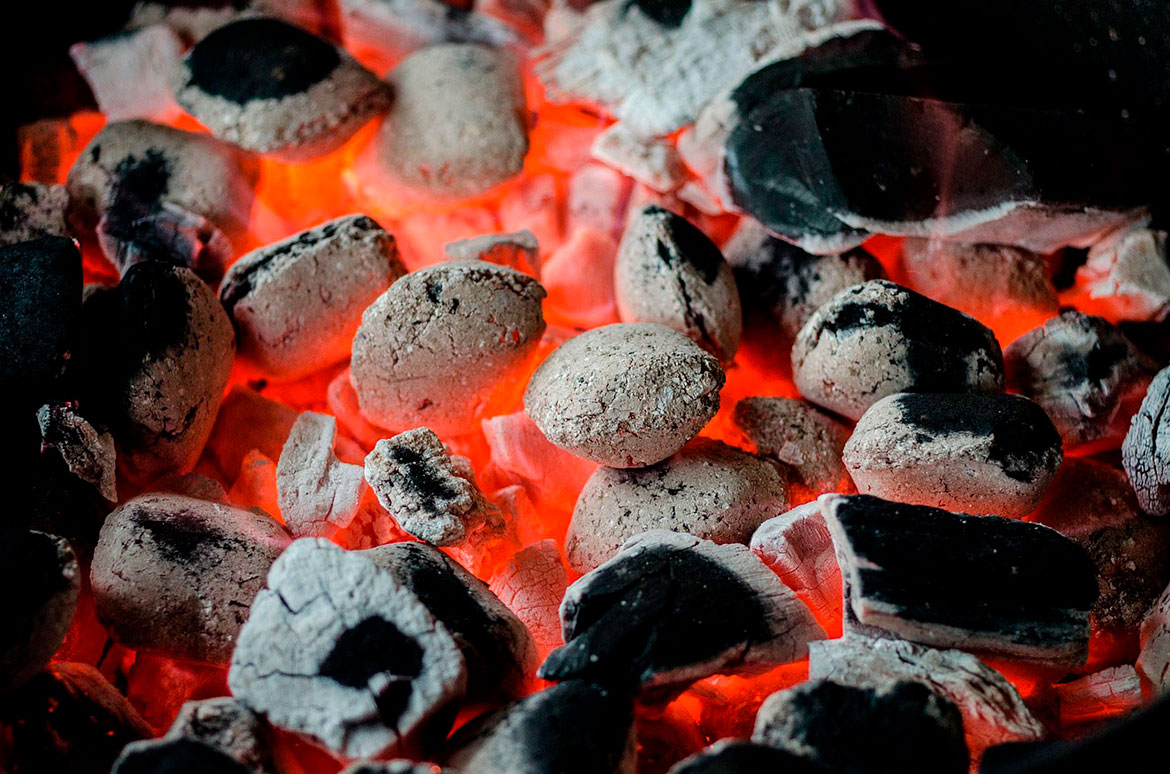Beginner's Guide to the Charcoal Camp Grill
There is very little that compares to a campfire, and when you want the most controlled sort of campfire, it is tough to beat a charcoal camp grill. After all, this is one that is contained in an actual vessel and at very little risk for getting out of control. Naturally, it takes a bit of effort to make a charcoal camp grill, and in this article we are going to look at:
- How to light and clean a grill
- How to deal with a charcoal camp grill after it has been used
- The benefits of a charcoal grill
That's a lot to cover, so let's dive right in.
Lighting a Charcoal Camp Grill
Whether you use a charcoal grill in the backyard (who doesn't want to pretend they are enjoying a weekend of camping?), while tailgating, or you are actually in a campground, the first step to lighting a charcoal camp grill is actually to clean it.
This means removing the grill and washing it. Your next step is to remove ashes from the bottom and then light a fire in the grate for about 30 minutes. This burns off greasy residues and gets the grate ready for use.
Before building the fire, oil the grate to prevent food from sticking and the grate from rusting. Allow it to sit to the side while building the fire.
And what is the best way to build a charcoal fire? That is a heavily debated topic, and there are a few schools of thought:
- Self-starting briquettes (such as Machlight)
- Lighter fluid on standard charcoal briquettes
- Charcoal chimneys
We'll skip right to the chase on this point and say that it is the final option - using charcoal chimneys - that is the best.
Using a Chimney
Using the charcoal chimney is one of the easiest ways to get the job done and you don't get all of the odor and chemicals from the lighter fluid. To do it is very simple. You need:
- Charcoal chimney
- Newspapers
- Briquettes (without starter fluid)
Clean the charcoal grill and put the lower grate back in place in the grate. Open the vents at the bottom of the grill. Fill the space at the bottom of the charcoal chimney with newspapers, and insert the loose metal ring. Pour briquettes on top and then position this entire unit inside the grill. Light the newspaper and watch the science of airflow take over. Soon you will have a container of glowing red briquettes.
You can use insulated gloves or the "safety handle" to pour the charcoal into the grate. After this is done you can then replace the upper grill to begin cooking. However, if you are using "indirect" grilling you need to make space for your drip pan.
What is indirect grilling? That is actually one of the benefits of charcoal grilling. There are quite a few bonuses to cooking in this way, so let's consider them now.
The Benefits of Charcoal Cooking
Though it is not as easy as cooking with gas, charcoal grills can be said to be superior to them in many other ways:
- There is no comparison to the flavor of foods cooked over charcoal. Gas cooks well, but doesn't impart that smoky and earthy flavor.
- It is far more affordable. Charcoal grills cost a great deal less than gas grills and are more affordable to use since charcoal is cheaper than propane.
- Charcoal cooks at a higher heat than gas, and this means it can be used for almost any sort of meat, and especially when it is indirect cooking.
Indirect cooking is done for thicker cuts of meat. The coals are poured into the grill and then spread out to accommodate a drip tray. This is placed beneath the meat on the grill and the lid of the grill is sealed in place. This slowly cooks the meat and creates a deep smoky flavor. Direct grilling on a charcoal fire is similar to standard grilling and positions food directly over the coals.
A single briquette is usually capable of creating 40 degrees of heat. This is why many recipes for charcoal cooking say to place "ten to twelve" briquettes on the sides of the grate or beneath the meat/food. This is like saying, cook in a 400 degree oven, etc.
And how do you handle those briquettes when done. There is no safe way to dispose of hot charcoal briquettes. They do, however, tend to burn down within 12 hours if the bottom vents are opened. Always keep a heat-proof container on hand if you must leave the area before the coals have cooled to a manageable temperature, and never dump them on the ground.
Cooking with charcoal gives food an unbelievable flavor, and now you know how to build a good fire and handle your grill safely.
Resources
- Weber - Mastering Smoke - Weber.com
- Boy Scout Cooking Merit Badge
- National Park Service - Beach Fire and Campfire Regulations


